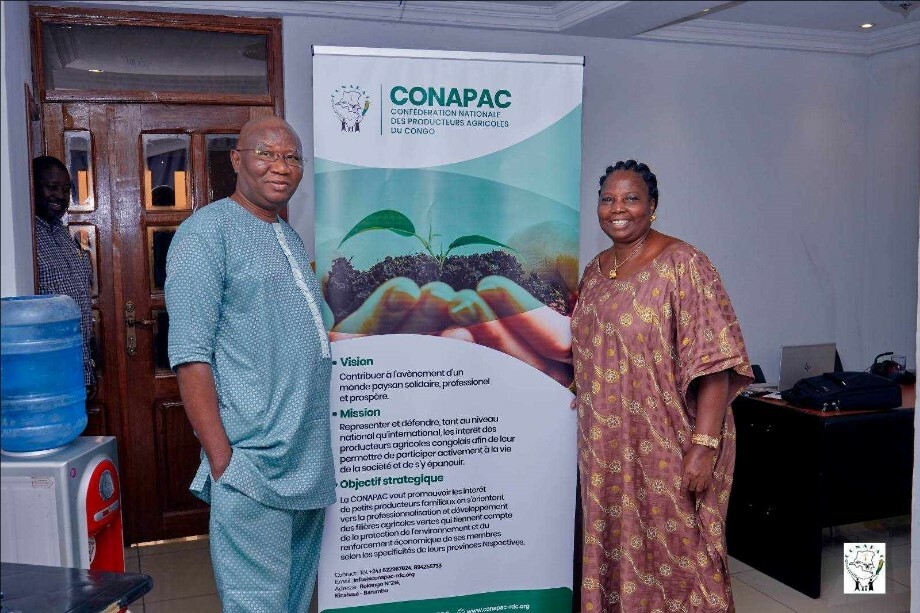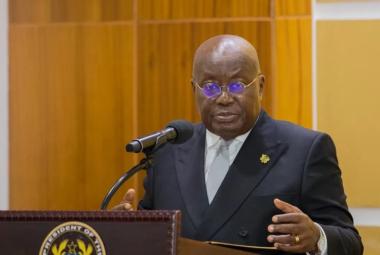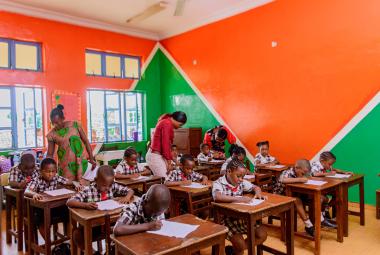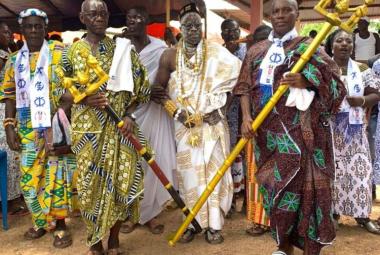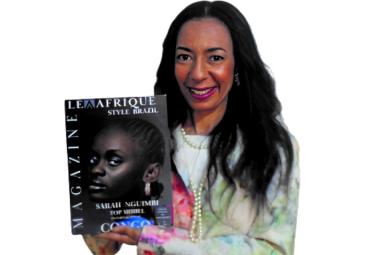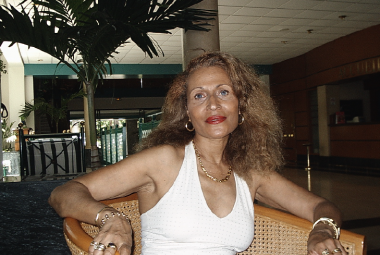Montreal - Boubakar Traoré, economic development expert, returns from the Democratic Republic of Congo (DRC) where he was immersed with the National Confederation of Congolese Farmers (CONAPAC) on behalf of the Union of Agricultural Producers/International Development ( UPA-DI). Indeed, the one who founded Afro-médiation Inc. in Montreal, Qc, Canada (2009), has effectively campaigned for several years for the training of entrepreneurs and other African champions, as a solution to the fight against hunger and inequalities in the world. The support from CONAPAC, an agricultural organization with 3,000,000 members in the DRC, lasted an entire year.
We caught up with him to find out more.
Julie Freeman: How do you explain this new mandate in international development when you are already at the head of two important groups in Canada?
Boubakar Traoré: It is a mandate that came at a time when I needed to retreat in my entrepreneurial management without mourning the loss of my business, sharing my expertise and my passion with the seekers of skills and progress in the DRC , which corresponds to my beliefs.
J.F: What does this mandate consist of?
B.T: The mandate consisted of contributing to the development of the economic vision of the National Confederation of Congolese Farmers (CONAPAC), with its federations and its some 3,000,000 members. My mission was to facilitate the development of a sustainable inclusive economic strategy, and to arouse the entrepreneurial spirit among members, and also among Congolese youth. Finally, it was a question of supporting CONAPAC and its federations in the operationalization of its strategy, promoting equity between women and men, etc.
J.F: What assessment can you make to date?
B.T: After a year, major actions have been carried out, important situations analyzed, important meetings and exchanges carried out, transformation projects validated. However, the results remain mixed due to my expectations and my great ambitions for the DRC which must be the basis of performance and the economic segment of the African continent.
J.F: Tell us about your vision on international cooperation which seems to be becoming an obligatory step.
B.T: I summarize it as a lack of strategy which forces developing countries to remain in poverty despite the efforts they make. International cooperation then suggests strategies, initiatives, support and support through the experts that we are to promote the economic progress of local communities. It is a challenge that requires efforts from everyone, governments, donors and beneficiaries. The objective of donors is to support actions and lead a just, compatible and pragmatic transition. My fear is that this support will be seen as a cash cow or eternal charity, but I think I have made my contribution to this subject. These are the points which explained my mandate where several training courses take place, particularly in the context of sustainable inclusive entrepreneurship in order to provide this greater Congo with eco-preneurs capable in the medium term of making a place for themselves on the national, regional and international
J.F: Will you abandon your deeply rooted objectives of Afro-Médiation and ITERSOL-Canada in favor of international cooperation?
B.T: Far from it, this deployment is an added value to my entrepreneurial principles, and not a professional reconversion. My previous experiences in various fields including Afro-Médiation surely worked in my favor for the execution of this mandate, and I believe without being mistaken that the repercussions of this mandate will do the same for my personal, organizational and relational influence.
J. F: To what extent were you effective in promoting this mandate?
B.T: My multicultural skills, my experiences acquired from my late father, a planter and lover of the land and those acquired in Canada and in pre-departure training were opportunities for this mandate and for the Congo which is full of untapped resources. The chosen support sector, namely inclusive and sustainable agriculture, has been a formidable vector for promoting the improvement of the working and living conditions of producers, and has helped to promote rural economic development.
J. F: The Congo is full of unexploited resources. So what are the Congolese missing for real and imminent development?
B.T: This is practically the question that almost everyone asks without any intelligent answer. It is a real ping-pong ball that is being played between the leaders, the population, the donors, the former metropolis and certain neighboring countries. As far as I am concerned, the lack of vision and accountability at all levels is one of the reasons. Added to this are institutional shortcomings, lack of infrastructure and weakness in terms of agricultural production management. In the medium or short term, it is necessary to develop agriculture which remains the primary solution to improve the subsistence conditions of the Congolese.
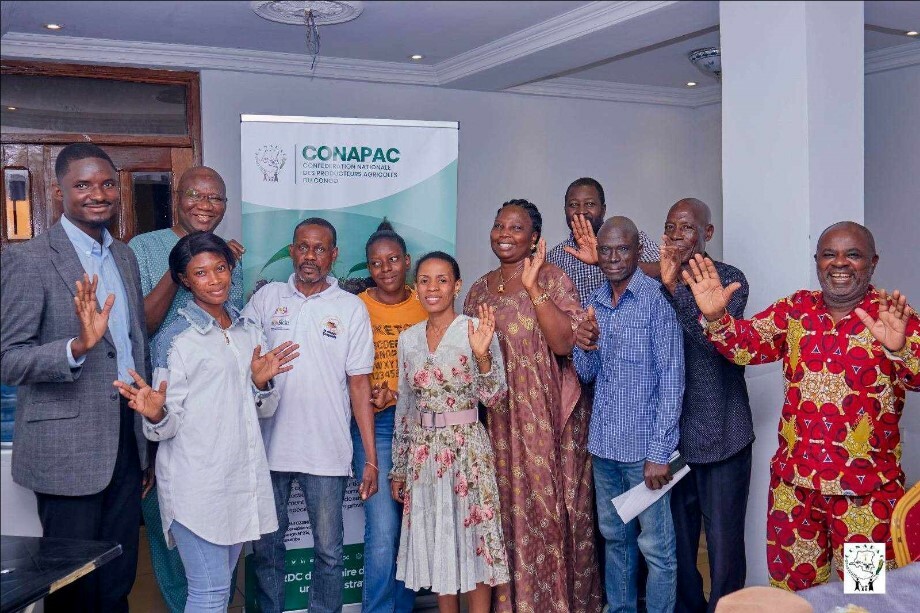
J.F: So what is left to improve the conditions of the Congolese through agriculture?
B.T: Firstly, consider being part of the continuity. Second, work with our land and for our land. Third, encourage and support the subsistence sector to meet the needs of local consumers before the export sector which often remains an economy with low returns due to the demands of international markets.
J.F: For your final words, what message for the Congolese and for CONAPAC?
B.T: I confirm here that beyond the difficulties of managing its thousands of members, CONAPAC remains a concentrate of opportunities, and all the actors involved in its management have greatly appreciated this mandate by agreeing on the benefits of the partnership UPA-DI/CONAPAC. I agree with the Board of Directors of CONAPAC that we must encourage this North/South partnership for agricultural development in order to neutralize hunger, this formidable weapon which claims even more victims than nuclear power. My hope is that the tools and lessons transmitted will gradually benefit this population estimated at approximately 90 million inhabitants over an area of 2,345,409 km2 of which women constitute 52%, or the majority. Aware that agriculture remains the main activity which unfortunately remains unfavorable to the cause of women in the DRC because of socio-cultural constraints, I plead for this north/south partnership. I remain optimistic that with the support of leaders, stakeholders involved, farmers, Congo, with its potential to feed two billion people (source FAO) could effectively feed its entire population.
Interview conducted by Julie Freeman
Source : https://lexterieur.com/
L’Extérieur (CÔTE D’IVOIRE)



